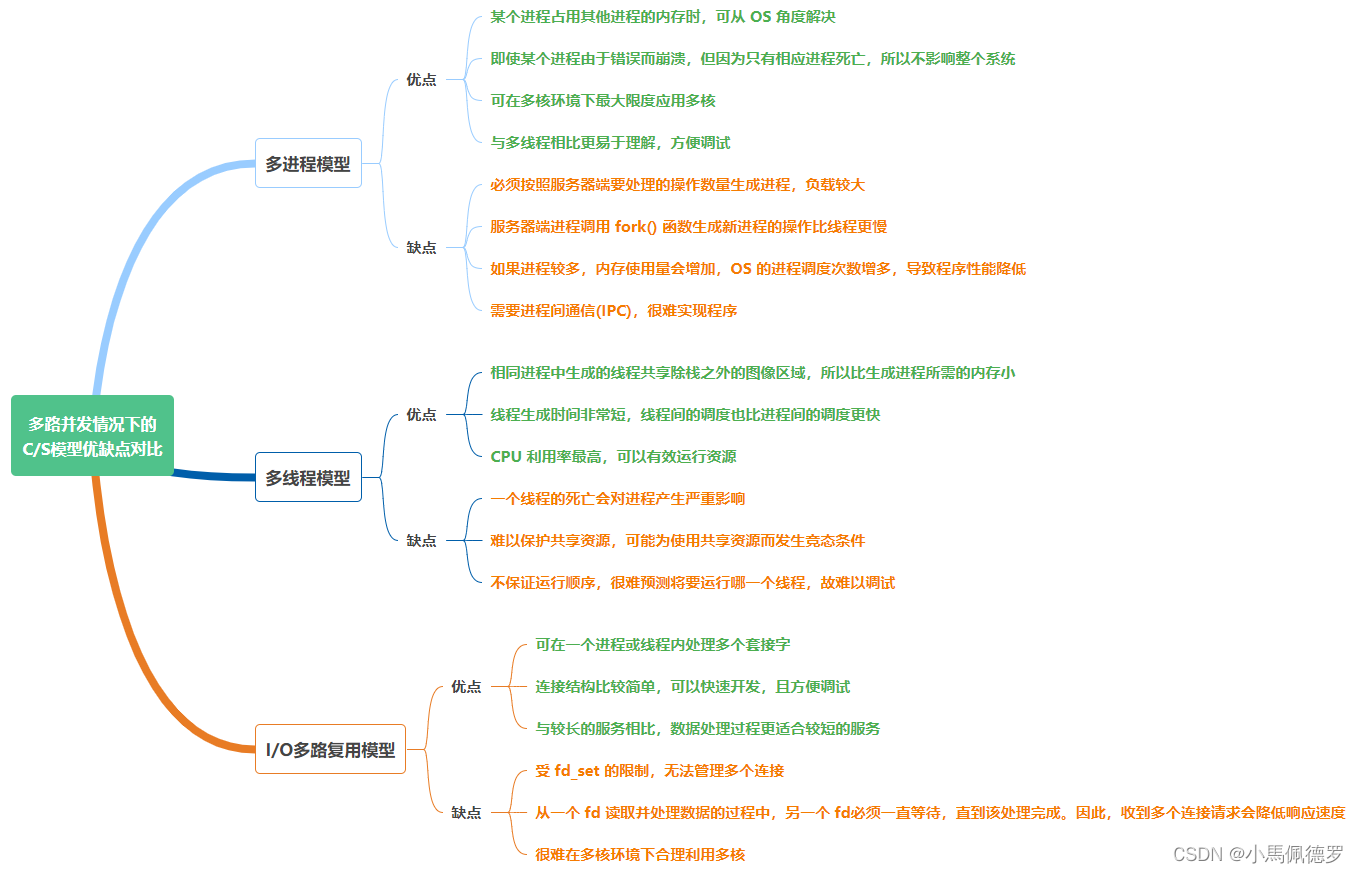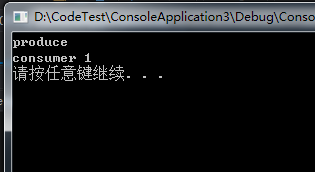目录
一,二叉树链式结构
二,二叉树的遍历(四种)
前序遍历
中序遍历
后序遍历
层序遍历
三,二叉树接口
四,试题
一,二叉树链式结构
- 普通二叉树的增删查改,意义不大;
- 普通二叉树+搜索树规则,增删查改才有价值;
//二叉树链式结构
typedef int BTDataType;
typedef struct BinaryTreeNode
{
BTDataType _data;
struct BinaryTreeNode* _left;
struct BinaryTreeNode* _right;
}BTNode;
//创建节点
BTNode* BuyNode(BTDataType x)
{
BTNode* node = (BTNode*)malloc(sizeof(BTNode));
if (node == NULL)
{
perror("BuyNode");
exit(-1);
}
node->_data = x;
node->_left = node->_right = NULL;
return node;
}
//自定义二叉树
BTNode* CreatBinaryTree()
{
BTNode* nodeA = BuyNode('A');
BTNode* nodeB = BuyNode('B');
BTNode* nodeC = BuyNode('C');
BTNode* nodeD = BuyNode('D');
BTNode* nodeE = BuyNode('E');
BTNode* nodeF = BuyNode('F');
nodeA->_left = nodeB;
nodeA->_right = nodeC;
nodeB->_left = nodeD;
nodeC->_left = nodeE;
nodeC->_right = nodeF;
return nodeA;
}二,二叉树的遍历(四种)
- 前序遍历,根
左子树
右子树;
- 中序遍历,左子树
根
右子树;
- 后序遍历,左子树
右子树
根;
- 层序遍历,一层一层遍历;
注:深度优先遍历(前序、中序、后序),广度优先遍历(层序);
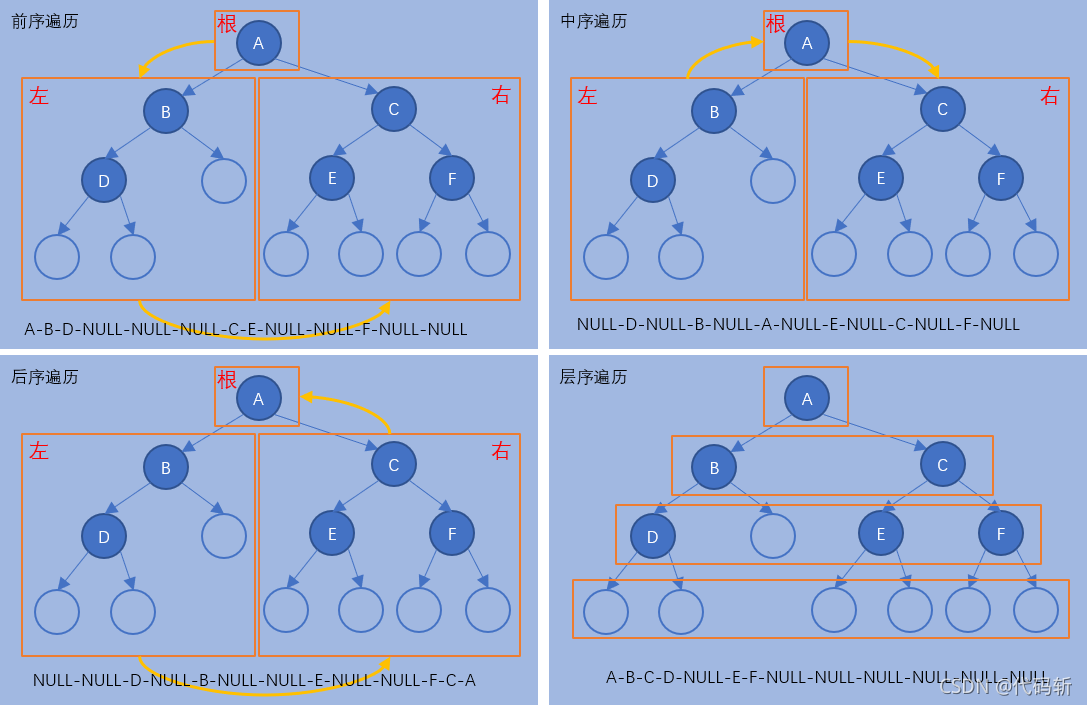
前序遍历
//前序遍历
void PreOrder(BTNode* root)
{
if (root == NULL)
return;
printf("%c ", root->_data);
PreOrder(root->_left);
PreOrder(root->_right);
}
中序遍历
//中序遍历
void InOrder(BTNode* root)
{
if (root == NULL)
return;
InOrder(root->_left);
printf("%c ", root->_data);
InOrder(root->_right);
}后序遍历
//后序遍历
void PostOrder(BTNode* root)
{
if (root == NULL)
return;
PostOrder(root->_left);
PostOrder(root->_right);
printf("%c ", root->_data);
}层序遍历
//层序遍历-利用队列
//一个节点出列,入列其子节点
typedef struct BinaryTreeNode* QDataType;
typedef struct QueueNode
{
QDataType data;
struct QueueNode* next;
}QueueNode;
typedef struct Queue
{
QueueNode* phead;
QueueNode* ptail;
}
void LevelOrder(BTNode* root)
{
Queue q;
QueueInit(&q);
if(root)
QueuePush(&q, root);
while(!QueueEmpty(&q))
{
BTNode* front = QueueFront(&q);
QueuePop(&q);
printf("%c ", front->val);
if(front->left)
QueuePush(&q, front->left);
if(front->right)
QueuePush(&q, front->right);
}
printf("\n");
QueueDestroy(&q);
}三,二叉树接口
//求二叉树节点个数-递归
//方法一,全局变量或static
int size = 0;
void BinaryTreeSize(BTNode* root)
{
if (root)
size++;
else
return;
BinaryTreeSize(root->_left);
BinaryTreeSize(root->_right);
}
//方法二,局部变量-传址
void BinaryTreeSize(BTNode* root, int* psize)
{
if (root)
(*psize)++;
else
return;
BinaryTreeSize(root->_left, psize);
BinaryTreeSize(root->_right, psize);
}
//方法三,返回值
int BinaryTreeSize(BTNode* root)
{
if (root)
return 1 + BinaryTreeSize(root->_left) + BinaryTreeSize(root->_right);
else
return 0;
}//求二叉树叶子节点个数
int BinaryTreeLeafSize(BTNode* root)
{
if (root == NULL)
return 0;
if (root->_left == NULL && root->_right == NULL)
return 1;
return BinaryTreeLeafSize(root->_left) + BinaryTreeLeafSize(root->_right);
}//求二叉树第k层节点个数
//当前树第K层节点个数 = 其左子树的第K-1层节点个数 + 其右子树的第K-1层节点个数
int BinaryTreeLevelKSize(BTNode* root, int k)
{
if (root == NULL)
return 0;
if (k == 1)
return 1;
return BinaryTreeLevelKSize(root->_left, k - 1) + BinaryTreeLevelKSize(root->_right, k - 1);
}//求二叉树深度
//当前树深度 = max(左子树深度, 右子树深度) + 1;
int BinaryTreeDepth(BTNode* root)
{
if (root == NULL)
return 0;
int leftDepth = BinaryTreeDepth(root->_left);
int rightDepth = BinaryTreeDepth(root->_right);
return leftDepth > rightDepth ? (1 + leftDepth) : (1 + rightDepth);
}
//二叉树查找值为x的节点
//先当前节点查找,没有,在去左子树查找,没有,在取右子树查找
BTNode* BinaryTreeFind(BTNode* root, BTDataType x)
{
if (root == NULL)
return NULL;
if (root->_data == x)
return root;
BTNode* retLeft = BinaryTreeFind(root->_left, x);
if (retLeft)
return retLeft;
BTNode* retRight = BinaryTreeFind(root->_right, x);
if (retRight)
return retRight;
return NULL;
}
//二叉树的销毁
void BinaryTreeDestory(BTNode* root)
{
if(root==NULL)
return;
BinaryTreeDestory(root->left);
BinaryTreeDestory(root->right);
free(root);
}
//判断二叉树是否是完全二叉树
//利用层序,空也入列,完全二叉树非空是连续的
bool BinaryTreeComplete(BTNode* root)
{
Queue q;
QueueInit(&q);
if(root)
QueuePush(&q, root);
while(!QueueEmpty(&q))
{
BTNode* front = QueueFront(&q);
QueuePop(&q);
if(front == NULL)
break;
QueuePush(&q, front->left);
QueuePush(&q, front->right);
}
while(!QueueEmpty(&q))
{
BTNode* front = QueueFront(&q);
QueuePop(&q);
if(front)
{
QueueDestroy(&q);
return false;
}
}
QueueDestroy(&q);
return true;
}四,试题
- 二叉树的前序遍历(设置子程序);
- 二叉树的中序变量(设置子程序);
- 二叉树的后序遍历(设置子程序);
- 单值二叉树;
- 两颗树是否相等(时间复杂度O(N)、空间复杂度即高度O(N));
- 另一颗树的子树;
- 对称二叉树;
- 根据指定前序遍历的字符串,重构此二叉树;
注:完全二叉树O(log(N));
附(前序/后序:可得到根,中序:可得到左右树的区间)
- 前序+中序,可重建树;
- 后序+中序,可重建树;
- 前序+后序,不可重建树;


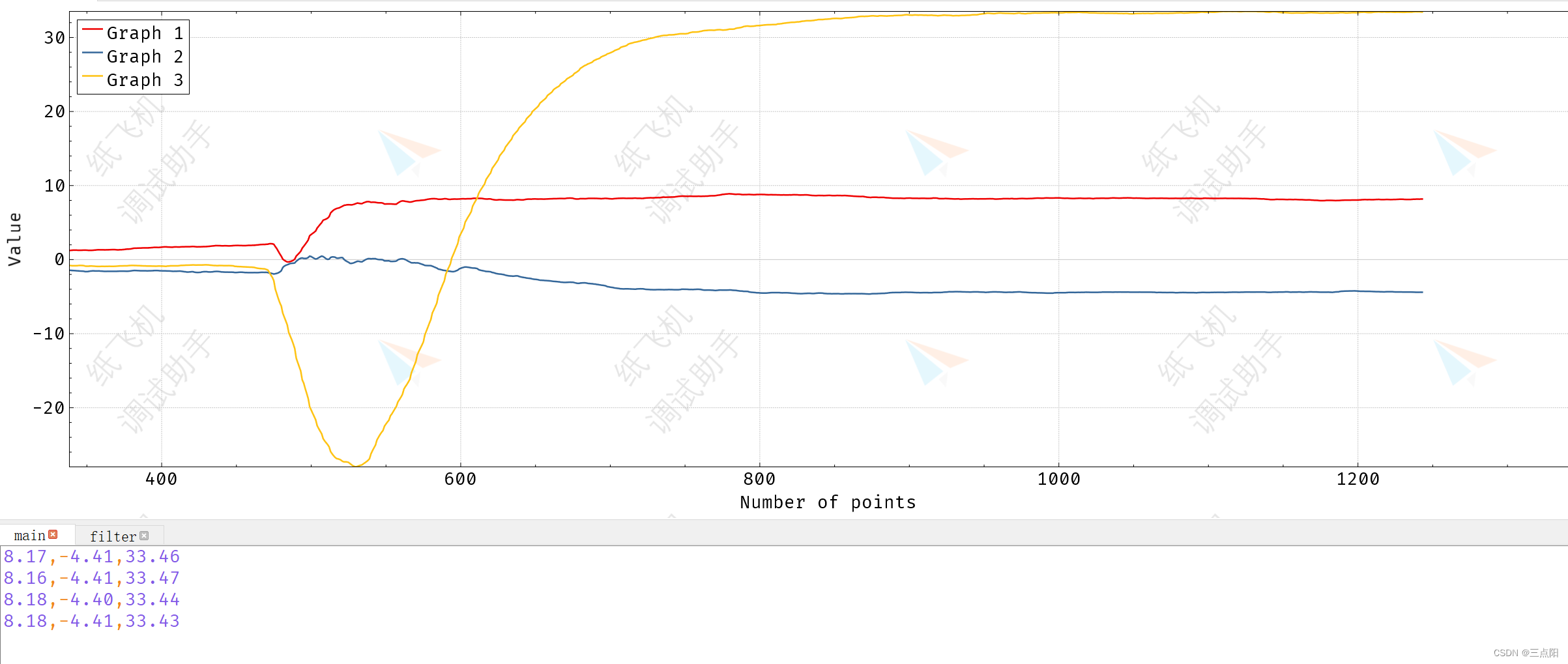


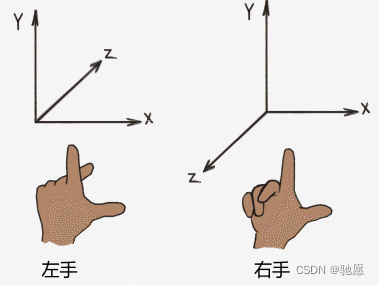

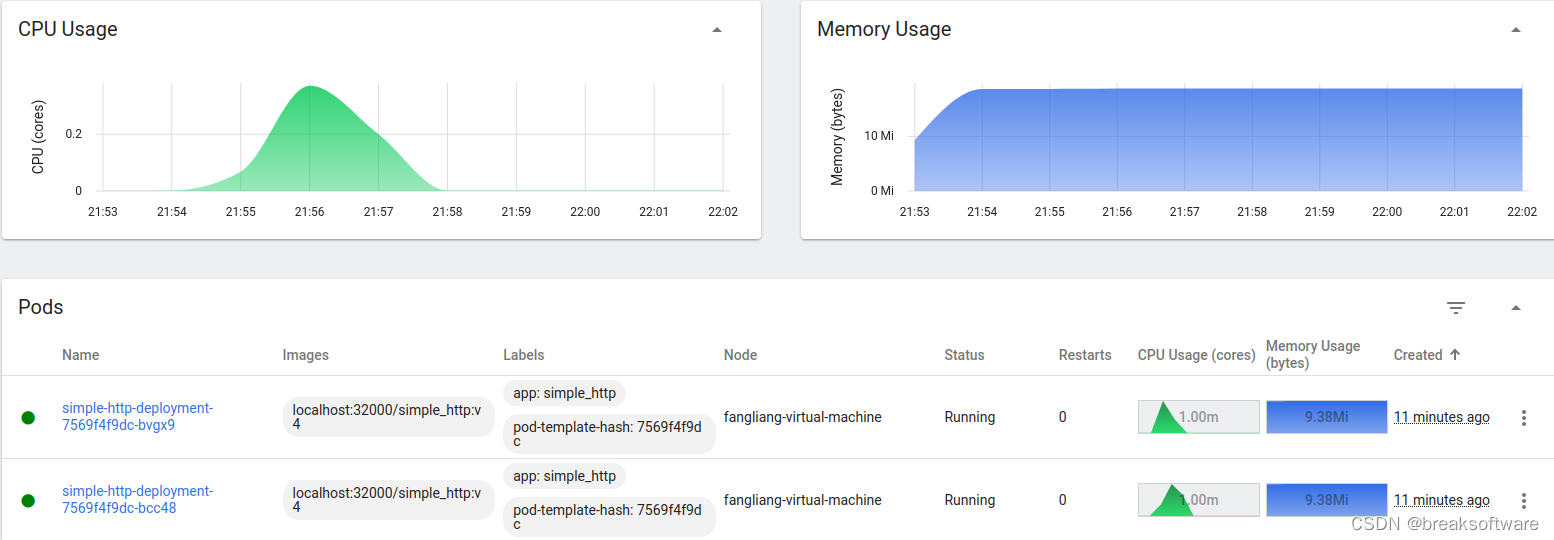

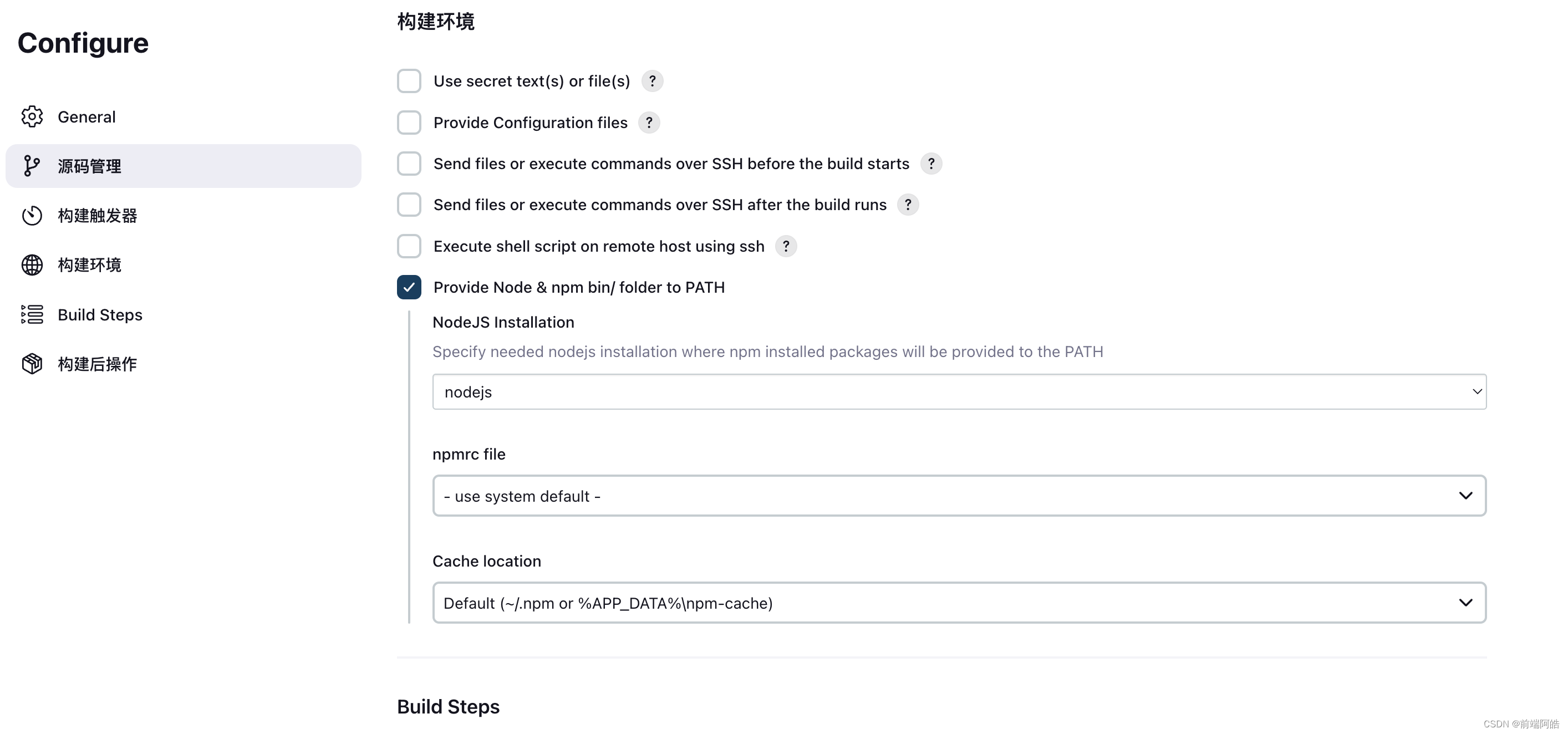
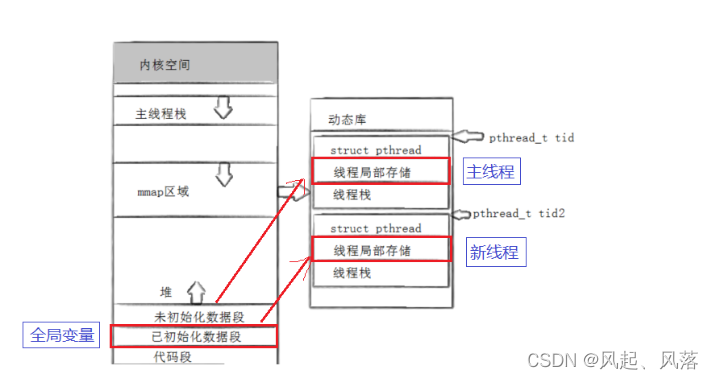

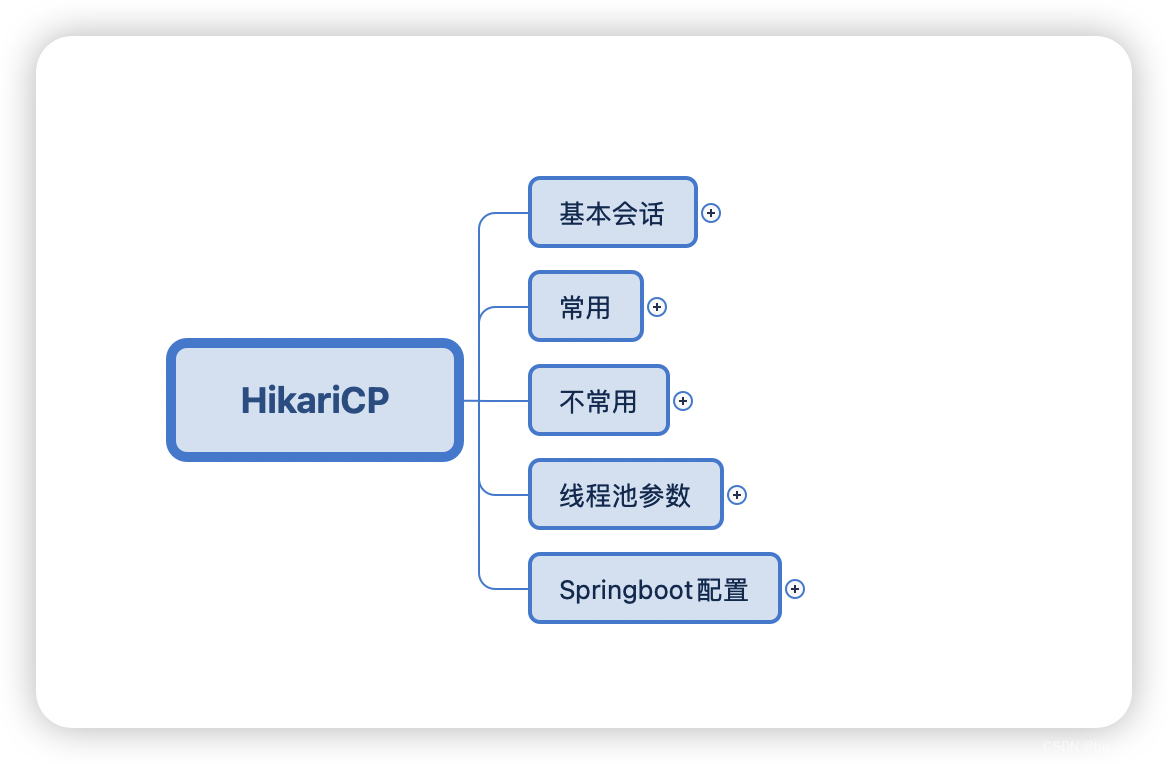



![【Linux系列P4】Linux需要什么?编辑器?软件包?一文帮你了解掌握 [yum][vim]———基础开发工具篇](https://img-blog.csdnimg.cn/e32ce7a4ec304e7389ad519a53a2866b.png)

